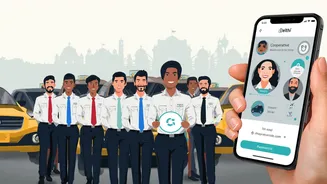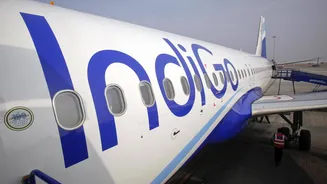What is the story about?
Delhi: The Delhi government is preparing to introduce the city’s first cooperative ride-hailing service, offering an alternative to corporate cab aggregators
while promising commuters a more affordable, surge-free experience. The initiative aims to put drivers in control of their earnings and create a more sustainable taxi ecosystem in the capital, as per a TOI report.
What Is The New Cooperative Cab Service?
Announced by Delhi’s Cooperative Minister Ravinder Indraj during the annual general meeting of the Delhi Citizen Cooperative Bank, the new service is part of the government’s broader effort to “revitalise the cooperative movement in the city with new direction and energy.” The cooperative model will allow drivers to retain 100% of their earnings, with no commission deducted by the platform, ensuring that profits directly benefit those behind the wheel.
Inspired by the Sahkar Taxi project being developed in Maharashtra and other states, the Delhi model will give drivers ownership in the platform, making them active stakeholders. Profits will be shared among members, and the cooperative will operate via a dedicated app that connects passengers directly with driver-members, as per the report.
How Will It Work?
Officials from the registrar cooperative society have been tasked with creating a detailed blueprint for the initiative. A feasibility report and framework are being developed, with regulatory clearances facilitated by the government. Unlike corporate aggregators, the Delhi cooperative will set transparent fare slabs without algorithmic surge pricing, giving commuters predictable and fair fares.
An official, as per the TOI, said, “The main objective is to uplift taxi drivers by improving their income, working conditions and overall quality of life. By making drivers active members and stakeholders, the government hopes to build a sustainable model that benefits drivers and consumers alike.”
Passengers stand to gain from stable fares, reliable service, and the absence of sudden price hikes, while drivers will enjoy social security benefits and fair profit-sharing. Indraj emphasised that the Delhi service would be tailored to the city’s unique transport needs: “Our service won’t be an exact replica of Maharashtra’s, but will be designed to suit Delhi’s conditions.”
Benefits For Drivers And Commuters
Taxi unions have welcomed the move. Sanjay Samrat, president of the Delhi Taxi and Tourist Transporters Association, said, “Cab aggregators take up to 40% commission on every ride, severely cutting into drivers’ earnings. When these firms were launched, their commission was zero, but that has changed drastically.”
He also suggested that the government include existing CNG vehicles in the cooperative framework, pointing out that forcing drivers to switch only to electric vehicles could be difficult due to high costs and limited profitability. Samrat emphasised the need for affordable loans for vehicle purchase to make the scheme accessible to more drivers.





















